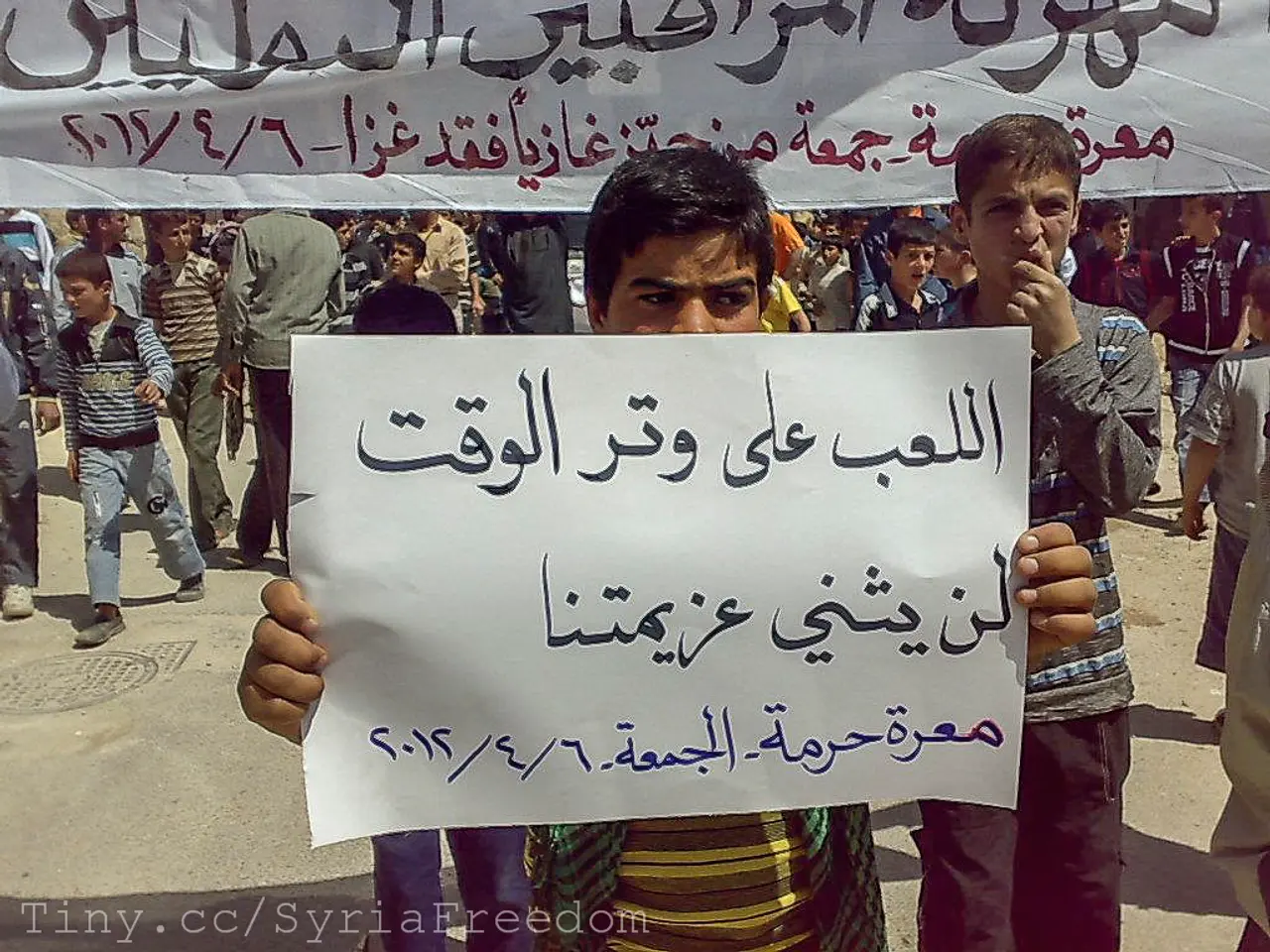Visitor visas for residents of Gaza are suspended by the US
In the wake of a military campaign launched in October 2023, the humanitarian situation in Gaza remains dire and is characterized by extensive casualties, widespread displacement, famine, and severely restricted humanitarian access.
The crisis has taken a heavy toll on the people of Gaza, with at least 61,900 Palestinians reportedly killed since October 2023, according to Gaza’s Ministry of Health as cited by OCHA. Over 154,000 have been injured, a high number of whom are children.
Displacement and shelter have become major concerns, with over 86% of the Gaza Strip either within Israeli-militarized zones, under displacement orders, or in overlapping areas. This has forced many to seek shelter in damaged buildings, overcrowded displacement sites, or open areas.
The situation has worsened with the confirmation of famine in Gaza, affecting more than half a million people trapped in severe food insecurity, starvation, and malnutrition. The famine is spreading geographically within the region and is expected to worsen without immediate intervention.
Aid deliveries face extreme restrictions. UNRWA has been unable to deliver humanitarian aid, including essential medicines and medical supplies, for more than five months. Only a fraction of planned aid movements into Gaza have been approved, with many denied by Israeli authorities. Humanitarian convoys and individuals seeking food have been attacked, resulting in nearly 1,400 deaths since May 2025, mostly attributed to Israeli military actions according to UN human rights reports.
International agencies and 27 partner governments have emphasized the urgent need for an immediate ceasefire to allow unimpeded humanitarian access. Protective measures for civilians, humanitarian workers, and medical personnel remain critical given the ongoing violence at distribution sites and convoy routes.
Approximately 1.4 million people in Gaza require emergency shelter, and about 1.45 million need essential household items, underscoring the scale of unmet humanitarian needs.
In a move to address the crisis, the U.S. Department of State, under the Trump administration, directed U.S. officials to apply social media vetting to all visa applicants who traveled to the Gaza Strip on or after January 1, 2007. This social media vetting was applied to both immigrant and non-immigrant visa categories.
The U.S. Department of State also announced a "full and thorough review" of the procedures for granting temporary medical-humanitarian visas to Gaza residents. However, the issuance of visitor visas for residents of the Gaza Strip has been suspended.
The humanitarian crisis in Gaza continues to deteriorate, with no end in sight. The need for immediate action to alleviate suffering and provide aid to those in need is more urgent than ever.
[References]
[1] United Nations Office for the Coordination of Humanitarian Affairs (OCHA). (2025). Gaza Humanitarian Situation Report No. 28. Retrieved from https://www.ochaopt.org/content/gaza-humanitarian-situation-report-no-28
[2] United Nations Human Rights Council. (2025). Report of the Independent International Commission of Inquiry on the Protests in the Occupied Palestinian Territory. Retrieved from https://www.ohchr.org/Documents/HRBodies/HRC/CoI/A_HRC_40_50_COI_EN.pdf
[3] United Nations Relief and Works Agency for Palestine Refugees in the Near East (UNRWA). (2025). Gaza Emergency Appeal. Retrieved from https://www.unrwa.org/emergency-appeal
[4] World Food Programme. (2025). Gaza Crisis: Millions of Palestinians Face Acute Food Insecurity. Retrieved from https://www.wfp.org/news/gaza-crisis-millions-palestinians-face-acute-food-insecurity
[5] United Nations Office for the Coordination of Humanitarian Affairs (OCHA). (2025). Gaza: Humanitarian Needs Overview. Retrieved from https://www.ochaopt.org/content/gaza-humanitarian-needs-overview-2025
- The ongoing humanitarian crisis in Gaza has been a topic of extensive discussion in the realm of general news and politics, with international agencies, including the United Nations, calling for an immediate ceasefire to allow unimpeded humanitarian access from war-and-conflicts-related turkiye government, such as Erdogan, to intervene and provide aid.
- In an attempt to address this critical situation, the government of Turkiye, under the leadership of Erdogan, has been actively involved in discussions about the crisis, advocating for a resolution to the conflict and pushing for the provision of essential aid, including food and medical supplies, to the people of Gaza.
- As the situation in Gaza continues to worsen, with the confirmation of famine affecting over half a million people, crime-and-justice issues, such as restricted humanitarian aid and attacks on convoys, have come to the forefront, highlighting the urgent need for political intervention from world leaders and the international community.






